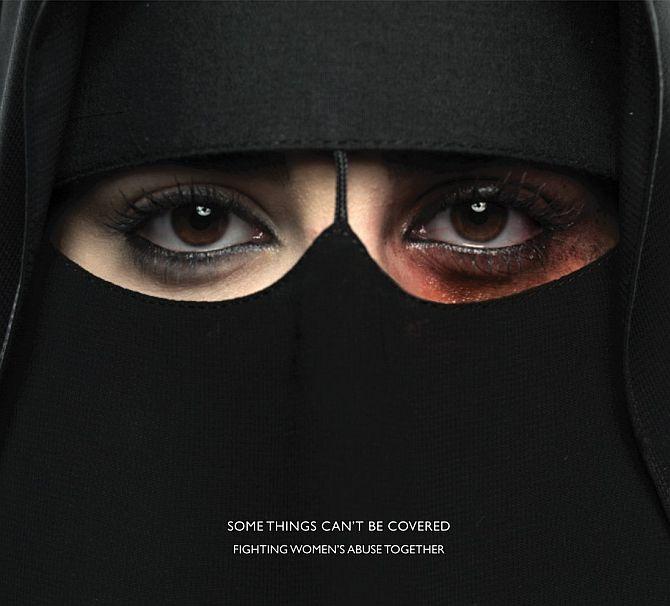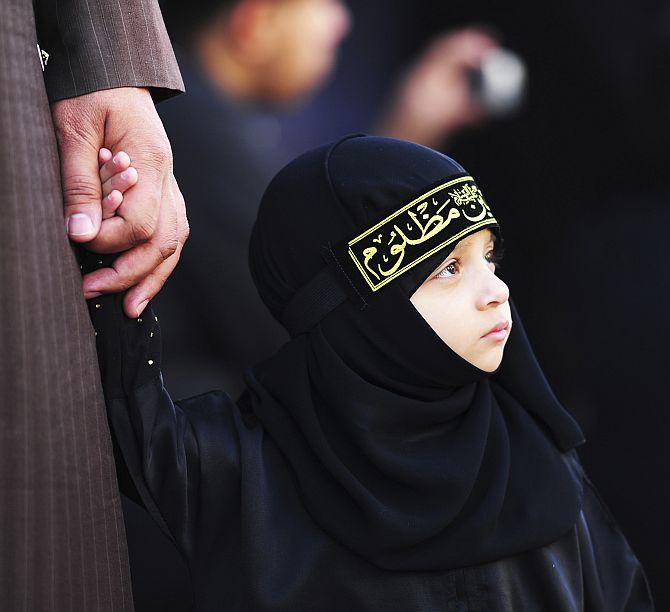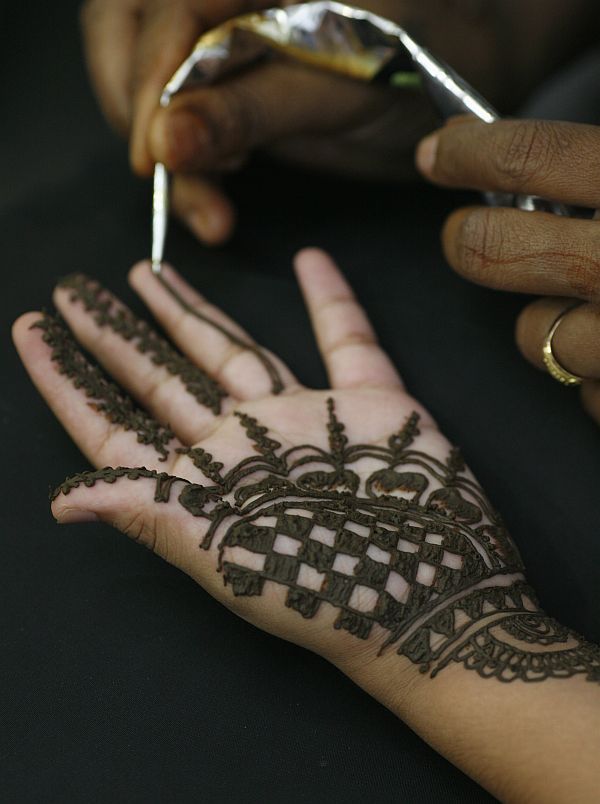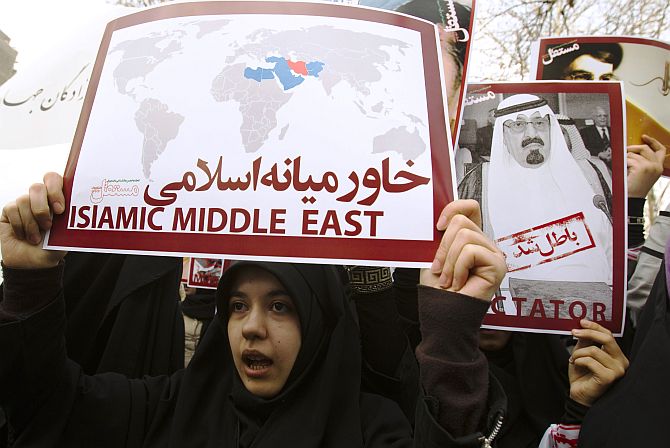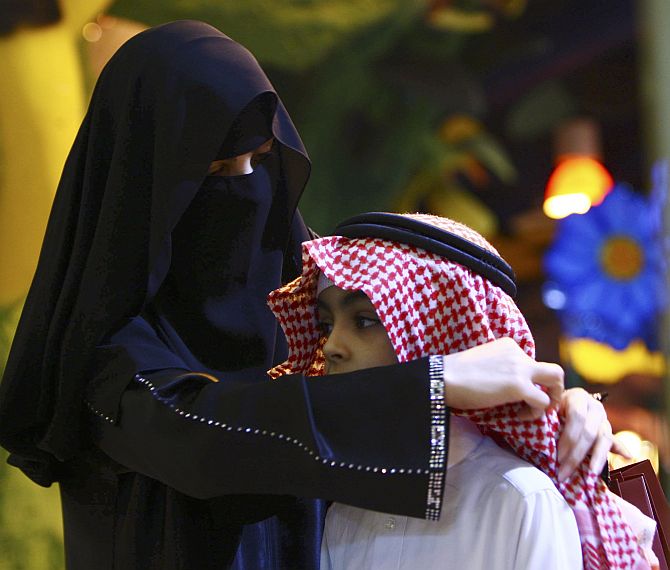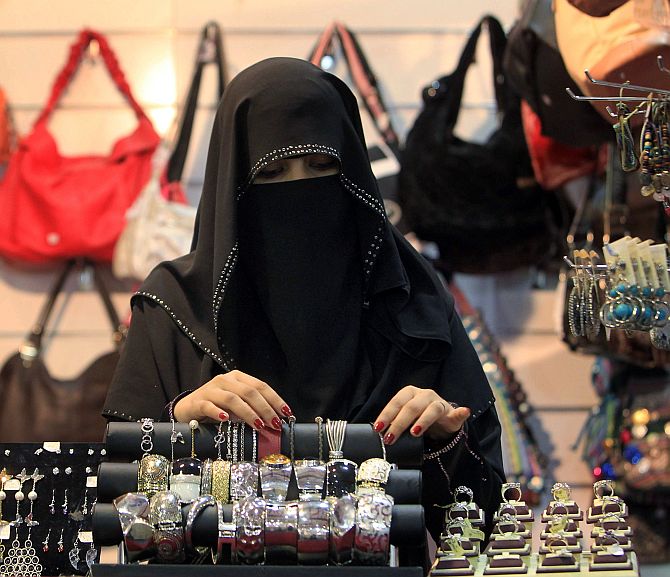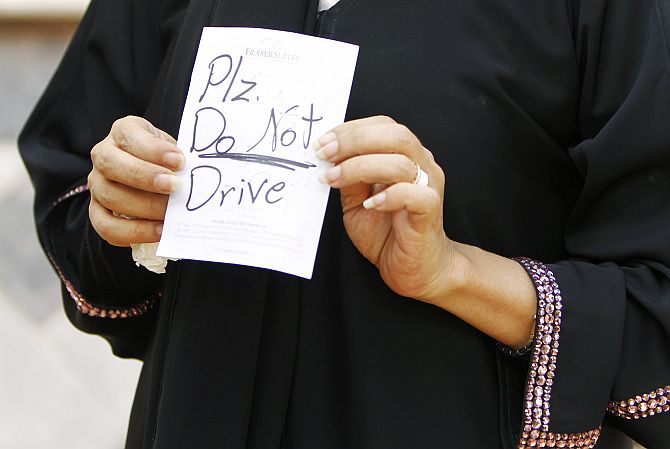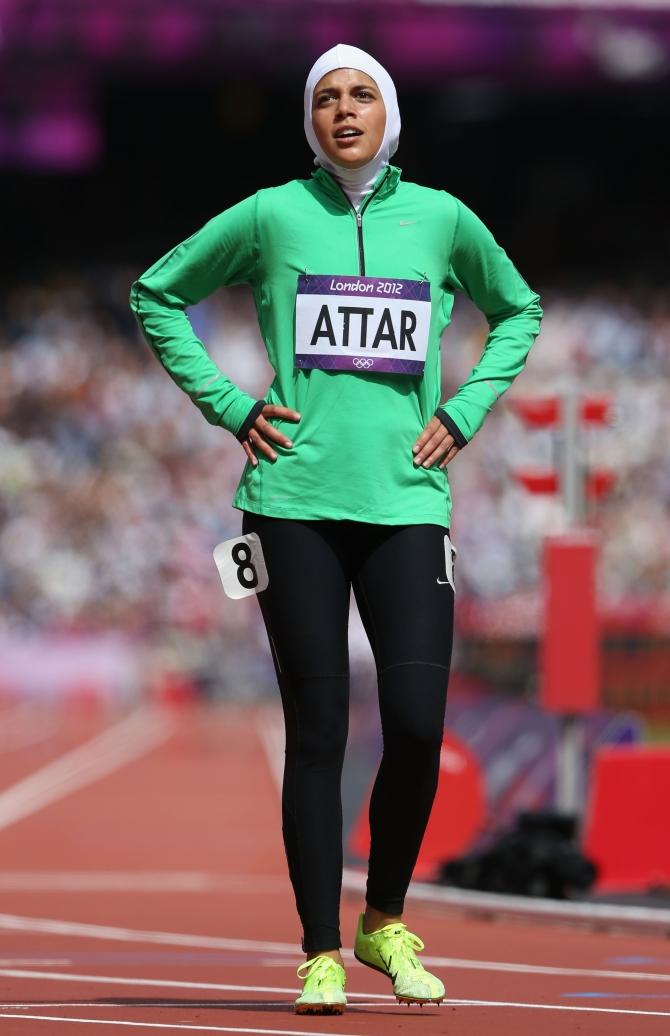 | « Back to article | Print this article |
7 SHOCKING laws that haunt women in Saudi Arabia
In a historic move last week, Saudi Arabia passed a legal ban on domestic violence and other form of abuse against women. The law is the first of its kind in a nation that has been dubbed as one of the worst places for women to live.
But will a Saudi Arabian woman report abuse by her male guardian? The domestic violence legislation is just a baby step towards emancipation in a country that considers girls “ready for marriage at 10", and where rape laws are a matter of ridicule.
Rediff.com takes a look at some shocking Sharia laws that prevent Saudi women from doing everyday things.
Click NEXT to read further…
No access to basic rights like healthcare without male guardian
Male guardianship
Fatima A, a 40-plus woman living in Riyadh, cannot board a plane without a written permission from her son.
In conservative Saudi Arabia, a woman's life is not her own; she is nothing but a legal minor.
Every woman in Saudi Arabia must have a male guardian. Till she ties the knot, the guardianship is the job of the father, but even uncles, brothers and sons can assume the role of a guardian.
As per this tradition, Saudi women need a go ahead from the guardian to study, work, travel and marry. That's not all. They need the permission of the guardian to access certain types of healthcare, thus increasing their dependency on their male counterparts.
A woman's access to justice is also restricted for she cannot file a case or even be heard in court without a legal guardian. And often, it is the male guardian who is abusive.
These discriminatory practices keep women away from their basic rights, giving them no authority over their own lives.
Click NEXT to read further…
Fathers 'sell' teenage girls to men in their 70s, 80s
Child marriage
Twelve-year-old Fatima's father sold her for marriage to a 50-year-old man who already had a wife and 10 children. Fatima managed to escape and finally got a divorce in February 2013, three years after Equality Now, a human rights' group, took up her case.
But Fatima's story is not a rule but an exception in a kingdom. It's not an uncommon practice to here girls, who have not yet hit their teens to forced to marry men in their 70s and 80s.
Sheikh Abdul-Aziz Al Sheikh, the grand mufti, considers girls ready for marriage from the age of 10 or 12. This he said at the faculty of Imam Mohamed bin Saud Islamic University in Riyadh in 2012:
“Those who call for raising the age of marriage to 25 are absolutely mistaken,” he added. “Our mothers and grandmothers got married when they were barely 12. Good upbringing makes a girl ready to perform all marital duties at that age.”
Today, Saudi Arabia faces immense pressure to raise the age for marriage as more and more cases of children forced into wedlock with older men have been reported in the media. Early marriages lead to an abrupt initiation to into sexual relationships, impact their right to education. Studies by UNICEF show domestic violence to be common in child marriages.
In April 2013, the Saudi ministry of justice confirmed new regulations where 16 will be set as a minimum age for marriage of girls. While this provides some hope for women it is hardly the first time that such announcements have been made. A similar announcement was made in 2009 as well. Moreover, the 2013 draft has several loopholes -- there's provision which allows the father to override the law under certain circumstances. Since it is the fathers who "sell" their daughters to wealthy men for a huge dowry, even if the law comes into force it will be redundant.
Click NEXT to read further…
There must be four witnesses to act of rape
Rape laws
In 2007, a Saudi court sentenced a gang-rape victim to six months imprisonment and 200 lashes. Initially, she had been sentenced to 90 lashes for being in a car of a man who was not a relative and flouting the rigid laws on segregation of sexes.
Saudi Arabia, where girls are married off in their pre-teens and covered from head to toe, is among the countries in the world with the highest rape cases. This can be blamed for the insufficient rape laws in the country.
Though Saudi's legal code is based on the Sharia law, which criminalises rape as punishment, spousal rape is not considered an offence. The anti-rape laws are flawed and the actual conviction process is impossible. In order for an accused to be convicted either he has to confess or there must be four witnesses to the act.
Foreign female domestic workers, which comprise of 1.5 million of foreign nationals, receive no protection from labour laws, and hence are the most exploited. Moreover, women enjoy no rights in courts. They are not allowed to speak for themselves and must be represented by a male relative or a lawyer.
And to add to this is the taboo against reporting rape. Often, the woman are accused to having an illicit relationship while the man is not questioned at all about the crime. A woman, who has faced such abuse, is often deemed unfit for marriage or is violently punished for bringing shame to the family.
The chances of justice for a rape victim is almost zilch.
Click NEXT to read further…
Purpose of educating is to be a successful housewife, mother
Education
In 2011, Swsan Ali El Demini, an ambitious 18-year-old wanted to pursue her study in the United States. Her father, considered to be her male guardian, backed her. But she was unable to apply. As per the Saudi ministry of higher education a male guardian is expected to accompany any girl who studies abroad on government scholarship. While both her parents were willing to accompany her, Swsan's father was barred from leaving the country and her mother was not considered a guardian, according to equalitynow.org.
In Saudi Arabia's sex segregated education system, the facilities available to women are inferior and more limited compared to the boys. According to the Saudi official policy, the purpose of educating a girl is to bring her up in a proper Islamic way so as to perform her duty in life, be an ideal and successful housewife and a good mother, ready to do things which suit her nature such as teaching, nursing and medical treatment.
To study overseas on government scholarship the permission of the male guardian is required and the student is regularly monitored by a cultural attache. The guardian has the authority to stop a girl from pursuing her studies and the girl needs his permission to choose a field of study.
There are several restrictions imposed on women -- they are not allowed to leave the premises of an educational institution even in case of an illness without a male guardian. Reports suggest that in many institutions female teachers and students are locked in during teaching hours.
The curricula and field of study are also restricted with no university programmes for women in engineering, architecture or political science. Even their access to libraries is restricted.
In what is being look at as a small step towards female education, Saudi Arabia's first female only vocational institute will be opening this September. However, the college offers education in subjects that have been specifically chosen to allow females to work from home such as business administration, fashion and jewellery design and beauty.
Click NEXT to read further…
Gender segregation prevents employers from hiring women
Employment:
Manar Saud graduated last May from a university in Winchester with a master’s degree in organsational leadership, paid for by a Saudi government scholarship. But six months after hunting for a job she was unemployed, according to a Washington Post report.
While the Saudi government spends billions on education its women, but the conservative society is still not open to women at workplaces.
The figures alone tell the story.
Around 57 per cent of Saudi women have university degrees.
78 per cent of female university graduates and 60 per cent with Phd degrees are unemployed.
Job prospects are complicated. Segregated since puberty, Saudis find it difficult to strike a conversation with the member of the opposite sex, making an interview awkward. Many employers still use the excuse that society is strictly gender segregated as a reason not to employ women.
As a result, Saudi women though more educated than men (Some 59,948 women received post-secondary degrees in 2009 compared with 55,842 men, according to the education ministry.) are a wasted source.
Click NEXT to read further…
Only country in the world that bans women drivers
Ban on driving
In 2008, Wajeha al-Huwaider, became a worldwide name, when she filmed herself driving a car and posted the clip on YouTube on International Women’s Day. Al-Huwaider’s act was considered that of civil disobedience in the only nation in the world, which bans women from driving.
Five years on, little has changed. Saudi women still depend on private drivers or male guardians to move around in the country.
There are no written laws that restrict women from driving. The prohibition is rooted in conservative traditions that giving freedom of movement to women would make them vulnerable to sins.
Generally, police stop female drivers, question them and let them go after they sign a pledge not to drive again. However, there have been cases where a woman has been sentenced (lashed) for breaking the law. Interference from King Abdullah saved her from the lashing.
In April, Saudi Arabia lifted a ban on women cycling and riding motorbikes. However, women are still prohibited from using bikes as a mode of transport, can use them in designated recreational areas but only if accompanied by a male.
Click NEXT to read further…
Women are banned from playing sports, gymming
Ban on sports
Two female athletes were allowed to compete in last summer's Olympics only after intense pressure from the International Olympics Committee to end Saudi Arabia’s practice of sending only male teams to the games. Their participation was NOT shown on Saudi TV stations.
Saudi girls are banned from playing sports in schools and are denied access to sports facilities, including gyms and swimming pools.
Princess Nora Bint Abdul Rahman Unviersity, the largest female university, has a swimming pool, tennis court and exercise area for its students. No other university in Saudi Arabia has sport facilities for its female students and staff, reports The Gaurdian.
Female athletes cannot register for sport clubs or competitions. They are banned from entering national trials, which makes it impossible for them to qualify for international competitions.
In May 2013, private schools were allowed to hold sports activities for its female students. But they have to adhere to a strict dress code and sharia law.
Click NEXT to read further...
Few rights that women can now enjoy...
Since the Arab Spring, King Abdullah has adopted a reformist stance, especially with regards to women’s rights.
He granted women the right to vote and run in the 2015 municipal elections.
In January, he appointed the first female members to the Consultative Council, naming 30 women to the 150-member advisory body.
In 2009, he opened the first-ever fully integrated coed university and appointed the country’s first female minister -- Nora bint Abdullah al-Fayez, a US-educated former teacher was made the deputy education minister.
Women can now work in lingerie and makeup stores, as supermarket cashiers and as quality managers at factories. Saudi Arabia now allows its women to work in restaurants in special sections, independent from areas where men work.
These changes though significant leave women in Saudi Arabia decades behind other countries. They have a long way to go.
Click NEXT for more photo features...
TOP photo features you missed last week
Click on MORE to see another PHOTO features...
